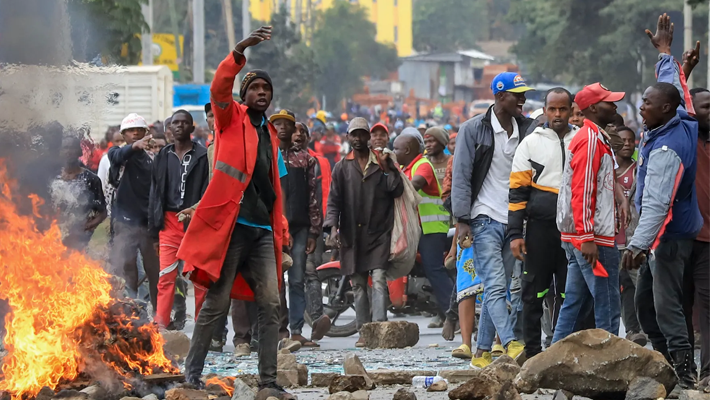On June 25th, 2025, young Kenyans, primarily from Generation Z, took to the streets to voice their frustrations.
Their protest was sparked by concerns over the Finance Bill and the perceived neglect from the government. However, the situation escalated dramatically, resulting in violence, with reports of shootings, tear gas, and numerous arrests.
In the aftermath, a critical question emerged: who bears the responsibility?
Government's Perspective: "It Was a Planned Attack"
Interior Cabinet Secretary Kipchumba Murkomen characterized the protest as violent, labeling it an “attempted coup.” He suggested that it was orchestrated by individuals posing as Gen Z activists, aiming to undermine the government.
President Ruto and other officials echoed this sentiment, alleging that foreign entities and political adversaries were exploiting the youth to incite disorder. They contended that the protest was less about taxation and more about fostering chaos.
Opposition View: "The Government Is the Problem"
In contrast, former Deputy President Rigathi Gachagua offered a different interpretation. He argued that the violence stemmed from government actions, claiming that thugs were dispatched to instigate looting and frame Gen Z as criminals.
Concurrently, he noted that police prevented peaceful demonstrators from entering the city, deploying tear gas and live ammunition.
“This was a deliberate attempt to undermine the youth movement,” he asserted.
Human Rights Concerns: "Innocent Lives Lost"
Organizations like Amnesty International have reported that many individuals lost their lives during the protests—some were shot, others disappeared, leaving families in anguish over their loved ones' whereabouts.
There are allegations that police attempted to obscure these deaths by attributing them to drowning or criminal activity.
Human rights advocates argue that excessive force was employed and that the government is concealing the true circumstances.
Voices of Gen Z: "We Just Want Change"
Members of Gen Z assert that their motivations for protesting were not influenced by any politicians; rather, they stemmed from a deep-seated frustration with taxes, unemployment, and a feeling of being overlooked.
“We weren’t paid to protest,” many stated. “We acted because we seek a better future.”
They contend that blaming the youth is unjust, as they feel unheard by the government and compelled to make their voices heard.
The Ongoing Debate: Who Is to Blame?
The answer remains elusive. The government attributes blame to opposition figures and external influences, while the opposition implicates the government in fomenting violence.
Human rights organizations point fingers at law enforcement, and the youth hold the broader system accountable for its failures.
This protest transcended mere financial grievances; it highlighted the widespread feelings of alienation and anger among young people.
Kenya now faces a pivotal decision: to engage with its youth or to suppress their voices. The nation continues to grapple with the question: who truly instigated the turmoil on June 25th?

-1770306232-md.jpg)
